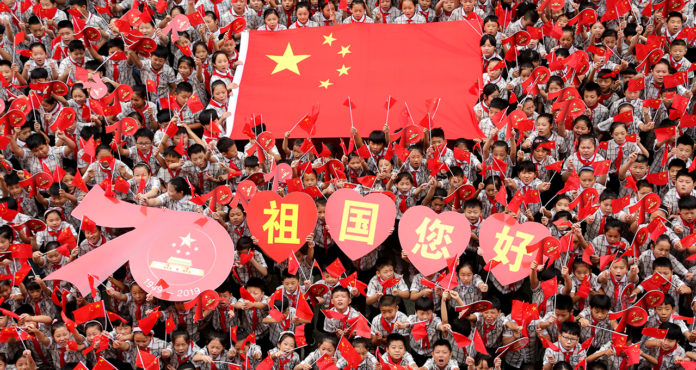Until recently, ordinary American investors could not invest in ordinary Chinese companies.
I’m not counting the few available on the New York Stock Exchange such as Alibaba. I mean, ordinary shares sold in Shanghai and Shenzhen.
However, that’s changing. China has made changes to eliminate the red tape keeping foreign buyers out. It’s opening its markets up to international investors. Now you can buy shares in many funds and ETFs specializing in regular Chinese companies.
But should you?
Points in Favor:
1. China’s stock markets are slowly being included in the MCSI World Index.
That index controls $13 trillion. China is the world’s second-largest economy and stock market, so its allocation should go between that of the United States and Japan. That’s at least 10%, or over $1 trillion. MCSI cannot invest that in Chinese stocks overnight without causing a huge bubble, so they’re going to do so over the next 5 years.
2. China must invest $1 trillion of retirement assets into stocks.
And you think Social Security is in trouble . . . China has a huge number of elderly people who want to retire, but there is no national retirement system. Most people have only one child to support the two of them, thanks to China’s long-time “one family, one child” policy.
To generate returns large enough to support their elderly, China will need to invest $1 trillion into stocks – some predict.
3. The Chinese economy is growing tremendously.
It’s slowed recently to 6% annually, but has been more like 10%.
4. China’s economy has advanced far beyond the cheap labor for export stage.
As a whole, it has. But its labor is still relatively inexpensive, and it’s well organized to manufacture low-cost products.
The Chinese people are hard at work constructing new buildings, highways, and entire cities.
5. At an average P/E ratio of 12, Chinese stocks are highly undervalued.
Their stocks have boomed in the past – and fallen. That’s made many Chinese people themselves unwilling to invest in stocks. So they’re now cheap in comparison to the P/E of stocks in many other countries.
6. China’s major cities are highly advanced.
Chinese people don’t even like to handle obsolete cash. Most of them transfer money through a universal smartphone app called Wechat.
7. The government will keep its stock market propped up.
To save face, it will buy on dips, protecting investors from large drops.
8. The government is launching extensive “Made in China” programs.
President Xi plans to make China the international leader in AI technology by 2025. Alibaba, Baidu, Tencent, and other Chinese high tech companies are already making their mark.
9. Chinese stocks are a good way to diversify against a worldwide economic crisis.
Until a few decades ago, stocks of different countries did not rise and fall together. During the 2008 crisis, however, they all fell together.
Nobody knows for sure, but if the United States undergoes another major economic downtown, that may not affect ordinary Chinese stocks.
Against:
1. Trump’s trade war with China.
For President Xi, the trade war is more political than economic. It’d make economic sense for China to adjust its policies and come to a trade agreement with the United States. However, that could well result in President “For Life” Xi losing his job. And, possibly, other political changes the current Communist Party elites don’t want.
2. President Xi is a major change in political leadership.
His mindset is a return to the isolationist attitude of Mao Zedong. He is making the government more totalitarian. And he is strengthening and subsidizing the state enterprises. That weakens domestic private companies that are competing with the state enterprises.
3. China has massive amounts of debt.
It’s estimated the country’s bank loans, corporate debts and government debts amount to 200% of the country’s GDP. This includes “shadow banking,” lending by unregulated institutions.
4. The reported growth is a fake number.
It’s manipulated by the government so it looks better than it really is. Actual growth could even be negative.
Plus, some of the growth is useless spending, such as building “ghost cities” where nobody lives.
5. Because China’s population growth is slowing, its workforce is actually shrinking.
6. The leadership is clearly afraid of massive social unrest.
If the government can’t deliver on its promise of middle-class prosperity and a chance at wealth, the young could rise up.
Conclusion
China is a large country facing extreme problems. However, the same can be said of the United States, which also has a huge amount of growing debt and an aging population.
Because my crystal ball is not working at the moment, consider this post as a way to alert you to the growing opportunity.
As the world’s second-largest economy and stock market, China should not be arbitrarily ignored. If you invest in other countries, such as the United Kingdom or Japan, you should put a piece of money into China.
If you’re happy investing only in American-based companies, that’s also a reasonable strategy.
China has been a huge growth story for the past 30 years – and that could continue another 30 years.
Or not. It could fall apart into chaos, as many (so far, inaccurately) have predicted it will.








